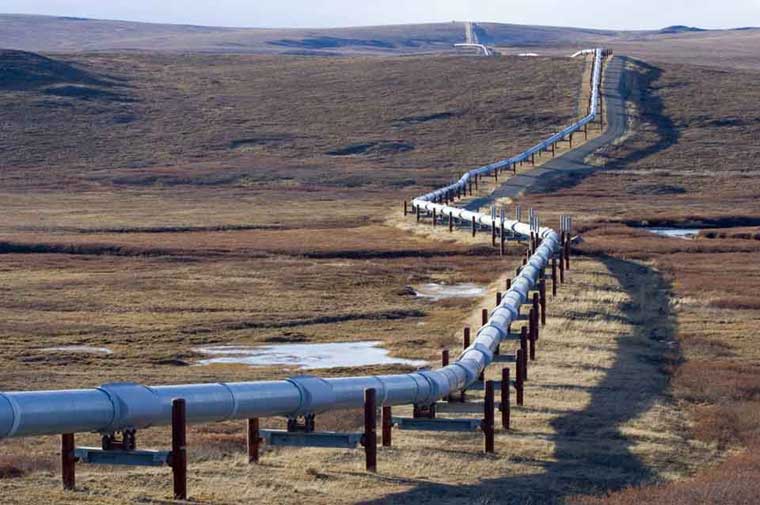
Increased oil and gas production in the United States and Canada over recent years has lead to demand for new pipelines. Pipeline construction can be devastating to the environment and communities. Companies often use questionable eminent domain practices to seize land from property owners, and building pipelines can involve cutting down extensive areas of forest and digging through streams and wetlands, severely disrupting local ecosystems. Once pipelines are in place, it is not a matter of whether, but when they will leak. Due in part to neglect, there have been numerous instances of oil and gas pipelines leaking, catching fire, and even exploding, putting lives and the environment at grave risk. Pipeline compressor stations often emit huge quantities of air pollutants causing human health hazards, especially for at-risk segments of our population such as children and seniors.
Considering that just one pipeline can impact many communities and poses a continued risk of dangerous leaks and spills, the process for approving new pipelines should be cautious and thoughtful, taking into account all of the potential impacts and whether the pipeline is truly in the public interest. In reality, the pipeline approval process unfairly puts the interests of fossil fuel companies above any other concerns.
The Federal Energy Regulatory Commission (FERC) is the federal agency in charge of approving interstate natural gas pipelines. When a company wants to build a new interstate gas pipeline, FERC is supposed to ensure that the project is actually in the public interest before granting a license allowing pipeline construction. Instead, FERC has historically looked primarily at whether the company will have gas to move through the pipeline, essentially ignoring many other factors, such as impacts on communities and the environment, or whether the gas will be exported and have no impact on U.S. energy independence. Because of this, FERC has a well-deserved reputation of being nothing more than a “rubber-stamp” for fossil fuel interests.
FERC is made up of five commissioners nominated by the President and confirmed by the Senate. On June 6, 2017, the Senate Energy and Natural Resources Committee voted to approve President Trump’s two new nominees to FERC, which means they will soon be voted on by the full Senate. The new nominees are Robert Powelson and Neil Chatterjee. Both of these nominees have demonstrated a clear bias in favor of fossil fuel interests, with Robert Powelson even once comparing climate change activists to terrorists. If these nominees are approved, FERC will surely continue to unfairly prioritize fossil fuel profits over private property rights, community safety, and environmental health.
This week, we are asking you to fight for a fairer FERC by calling your Senators and asking them to oppose these nominees:
“My name is [YOUR NAME] and I am a resident of ZIP code [ZIP CODE]. I am calling today to urge you to vote against Robert Powelson and Neil Chatterjee joining the Federal Energy Regulatory Commission, otherwise known as FERC. FERC already unfairly prioritizes fossil fuel profits over the best interests of the public, and these nominees will only make this worse. They have shown a clear bias for fossil fuel interests. FERC should not act as a rubber stamp for the fossil fuel industry – it must require that any new interstate gas infrastructure is truly in the public interest. This should involve looking at many factors, including the impacts on communities on pipeline routes, the environmental impacts of leaks and spills, and whether the gas is really vital to meet our energy needs. Approving Robert Powelson and Neil Chatterjee to FERC would move the agency in the exactly wrong direction. When their nominations come to a vote, I ask that you please vote against their confirmations.”
Tip: Check if you Senator is on the Senate Energy and Natural Resources Committee. The only Senators on the Committee that voted against these nominees were Sens. Ron Wyden (D-OR), Mazie Hirono (D-HI) and Bernie Sanders (I-VT).
[CongressLookup show=”senator”]
Photo: Shutterstock/ Sam Chadwick